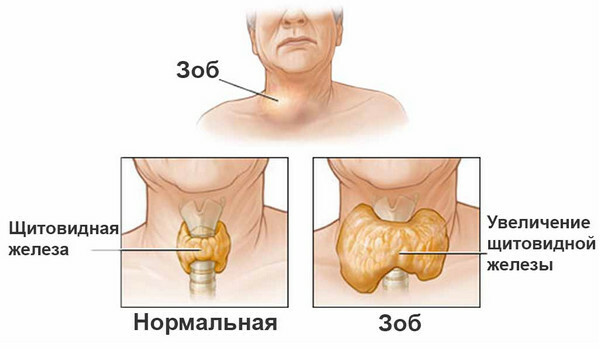Blood in the stool is not that rare. And although his reasons may be very different, the person's reaction should be the same - without delaying to see a doctor. The blood system is not suppressed with the circulatory system directly, and the situation created indicates unambiguous physiological damage to the body. But here to what doctor to address at a blood in a feces?

Causes of the emergence of
If the blood is found in the stool, it is not necessarily a global problem, especially if this is the first time and there are no special pain sensations anywhere. But this often indicates the onset of the disease. If you treat it on time, you can manage it in a few days or weeks. Do not treat - you can reach the surgical intervention, and even oncology.
What can cause a hemorrhage?
- It is necessary to exclude the possibility of staining of stool due to excessive entrainment of some products that contain natural or artificial dyes in large quantities. And if for an adult this can be a bowl of beetroot salad, then a small child can eat a banana or a pair of low-quality sweets. In infants, the color may depend on what the mother ate.
- Some medications may have a similar reaction, but it can be said only by a doctor after examination of the body with the results of all tests. An example can be activated charcoal, which colors the feces in an atypical black color, which can be taken for gore.
- Bright scarlet blood on toilet paper is more common in people prone to constipation or office workers with a pronounced sedentary lifestyle. Their vessels in the anal passage are often damaged, function incorrectly, forming hemorrhoidal nodes, easily burst, damaged by feces. The anus itself is prone to cracks.
- Inclusions in the blood or the same red blood can form the presence of worms that damage the mucosa of the rectum. Usually this phenomenon accompanies the itching at night, the feeling of stirring inside.
- Next come more complex problems, usually having additional symptoms in the form of nausea, dizziness, pain in different parts of the body, sometimes acute and violent, loss of appetite, pressure decrease. In the presence of such symptoms, you can safely call an ambulance and be ready for serious treatment.
- Infectious diseases can give symptoms of liquid feces with blood splatting. Among such diseases are dysentery and salmonellosis, the importance of timely treatment of which even our great-grandmothers knew.
- Ulcers of all stripes. Ulcer of stomach and duodenum, ulcerative colitis and proctitis. Can not be postponed, the onset of sepsis makes positive predictions minimal.
- Cirrhosis and its oncological changes.
- Crohn's disease.
- Oncological diseases of the upper or lower gastrointestinal tract.
To whom to contact
Blood can appear in the stool for a variety of reasons, and even in different forms. But it is depending on this type that it is possible to infer what kind of doctor to turn to, and which internal organs are damaged.
Proctologist
If, in addition to unpleasant sensations in the anus, there are no additional symptoms, to which doctor should be treated with blood in the feces - the answer is unambiguous. It is necessary to go on examination to the proctologist.
In order to go through all the procedures necessary to establish a diagnosis, some preliminary preparation is necessary, at a minimum:
- Nothing is from 18.00 last night.
- Set the enema at least 3 liters of water.
- Do not use ointments, suppositories or other medicines.
In paid clinics, if necessary, you can get an enema already in the medical institution as a paid service. Which option is more convenient, choose the patient himself, although it is worth remembering that professionals do it correctly, daily and will minimize discomfort.
If the pain is strong, you can go to an ambulance, regardless of whether you have been eating for a long time or just that. If necessary, the body will be brought to the right state quickly enough, will have a timely professional intervention, sometimes surgical.
Infectionist
Sometimes blood can go streaked in liquid feces. This phenomenon is accompanied by severe nausea, vomiting, fever, and sharp pains. If earlier no such phenomena were noticed, and they appeared suddenly, then most likely, we will talk about all sorts of infections, and we need to turn to the appropriate specialist.
Gastroenterologist
If the blood is dark, gore, veins, and unpleasant symptoms are already troubling for some time, then appearing, then disappearing, it's time to go to the gastroenterologist. Signs can be:
- Nicking, cutting pains in the abdomen, in the sides, solar plexus, burning sensation in these areas.
- The taste is sour or bitter, appearing regardless of the foods eaten.
- Nausea, vomiting.
- Belching.
- General weakness, dizziness.
- Loss of appetite.
- A dramatic unjustified diet reduction in weight.
All the symptoms need to be remembered in advance in order to tell the doctor about them accurately. In addition, some of the necessary procedures for diagnosis involve the lack of food in the upper parts of the digestive tract. At least it is necessary not to eat from the evening of the last day. It is ideal to sit on a sparing diet for 2-3 days.
Therapist
If you decide exactly and failed, on an empty stomach should go to the therapist or family doctor. After collecting a general anamnesis, and sometimes carrying out procedures and tests, he will refer the patient to a doctor of the appropriate profile.
Oncologist
Other specialist doctors are sent to consult this specialist after detection of neoplasms in the gastrointestinal tract, including polyps.
The main thing is to get medical help on time. Of course, most of the procedures that await the patient are physically and psychologically unpleasant. Not all localities have specialists of the right profile and many will have to go to regional and regional centers, busy people to apply to paid medical institutions. But in this case, delays will cost more in all senses.
In case of timely treatment, most often patients:
- Are examined by a specialized specialist, and sometimes by several. Anamnesis is collected, laboratory tests, diagnostic procedures corresponding to preliminary diagnoses. The diagnosis is made.
- Treatment is prescribed, usually ambulatory. Sometimes you will have to visit a polyclinic for physiotherapy, since doctors often use complex treatment, including medicines, herbs, physiotherapy, diets and exercise therapy.
- Some time it is necessary to be observed at the attending physician, as quite often the process should last some months, with smooth transition from a diet on a diet, application of various agents and procedures.
Next are preventive measures - a healthy diet and an active way of life.
Patients with severe bleeding and surgical intervention are admitted to the hospital. Unfortunately, in addition to staying in the hospital and serious medical interventions in the body, they are waiting for a complete change in the way of life, starting with nutrition.





